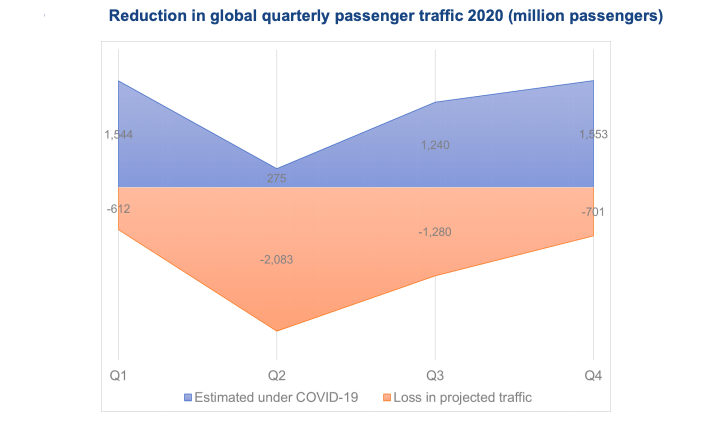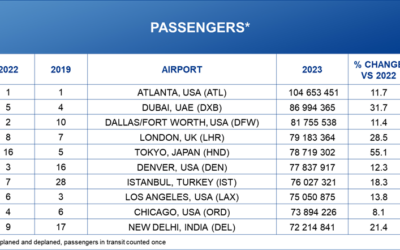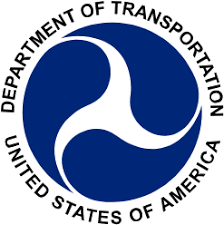In a new forecast, Airports Council International (ACI) World says the current global pandemic will cost global airports more than $97 billion in 2020 as it again calls for tax relief and direct assistance from governments to bolster the entire aviation ecosystem.
“The impact of the COVID-19 pandemic on airports, the wider aviation ecosystem, and the global economy continues to worsen and represents an existential threat to the industry unless governments can provide appropriate relief and assistance,” said Angela Gittens, ACI World director general, in a statement accompanying the forecast. “Jobs need to be protected and airports given financial support so people can rapidly return to work while operations can be scaled up to meet demand as the industry restarts.”
ACI World now estimates a reduction of more than two billion passengers at the global level in the second quarter of 2020 and more than 4.6 billion passengers for the full year. The estimated decline in total global airport revenues will be $39.2 billion in the second quarter alone as 17,000 wide bodies, narrow bodies and regional jets, or about 64 percent of the global fleet, will remain on the ground during the three month period.
“Traffic in most regions declined by more than 80 percent, with regional movement declines varying from a 90 percent decline in South America to a 56 percent decrease in North America—testament to the higher resilience of domestic traffic in light of severe restrictions on international flights,” ACI World noted. “As for airports, passenger traffic volumes declined by 90 percent in April on a global scale, ranging from a decline of 97 percent in Europe to a drop of 70 percent in Asia-Pacific.”
The ACI World Advisory Bulletin says evidence suggests that aviation markets with a significant share of domestic operations, characterized by vast geography and sizable populations, are more resilient in the face of the ongoing health crisis.
“China and the United States exemplify this pattern, as both countries continue to display a modest number of domestic flights,” the bulletin said. “The major international aviation markets, on the other hand, demonstrate in general much deeper declines in traffic volumes.”
ACI World notes markets that are tightly interrelated with transatlantic routes face an additional downside risk to the recovery, adding the prolonged health crisis may translate into a “lost summer” for the European airports, particularly those in the Mediterranean countries as well as the airports in Central and Northern Europe.
“Airports in North America and the Caribbean are also likely to suffer from hampered demand for international vacations, from the outbound and inbound traffic perspective, respectively,” the bulletin said. “Seasonal airports that had economic challenges even during normal times may lose a higher share of annual passenger traffic.”
ACI Word continues its call for additional financial relief from governments, including wage subsidy schemes to allow continued operations and a rapid return to full operations, the protection of airport charges and revenues, urgent tax relief, waivers to airport rents and concession fees and the continuation of charges on air cargo operations to maintain essential airside and cargo facilities. Grants and subsidies, secured financing, loans at preferential rates, and bank guarantees should also be made available, the organization adds.
“Financial relief and assistance is urgently needed but it is crucial for the prospects of a balanced recovery that any assistance benefits the entire aviation ecosystem and does not target once sector over other,” Gittens says.






